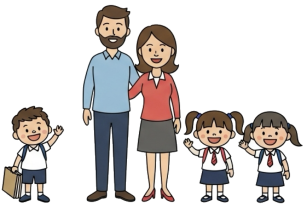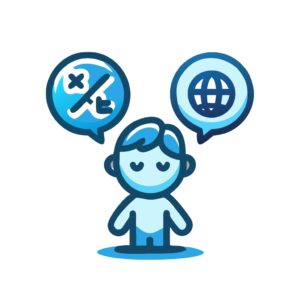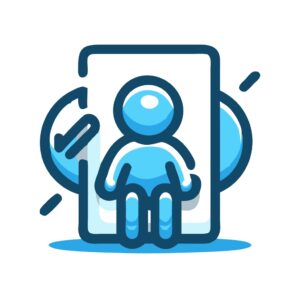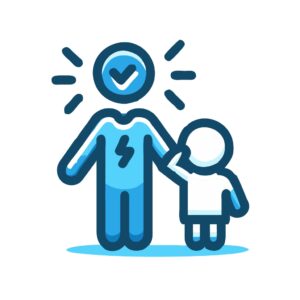
Question More, Action Knowledge.
Remember, at QMAK, we don’t just teach; we empower. We don’t just inform; we inspire. We don’t just question; we act. Become a Gold Member, and let’s unlock your child’s full potential, one question at a time.
Back to Mind Explorers
![]()
These games help children develop greater self-awareness, empathy, and emotional intelligence by exploring the concepts of freedom, judgment, and forgiveness.
The “Free the World” game encourages children to recognize the impact of their own judgments, opinions, and expectations on their perception of the world. By practicing setting the world free from these mental constructs, children can learn to approach life with greater openness, curiosity, and acceptance.
“Judgment Day” helps children become more aware of their judgmental thoughts and patterns. By simply noticing and acknowledging their judgments without trying to change or suppress them, children can develop a more objective and compassionate stance towards their own mental processes.
“Non-Judgment Day” takes this practice a step further by challenging children to refrain from judging altogether. While this can be difficult, it offers an opportunity to experience the world and others with greater empathy, understanding, and equanimity.
Finally, the “Forgive” game introduces the transformative power of forgiveness. By practicing forgiving everyone, including themselves, for everything, children can begin to let go of resentment, blame, and self-criticism, and cultivate a more loving and accepting relationship with themselves and others.
Hey there, young peacemaker!
Today, we're going to play some games that will help us explore the power of freedom and forgiveness.
These games are called "Free the World," "Judgment Day," "Non-Judgment Day," and "Forgive."
Each game will challenge us to look at the world and ourselves in a different way, and help us practice letting go of judgments and expectations.
By playing these games, we can learn to be more accepting, understanding, and loving towards ourselves and others.
Are you ready to start exploring the world of freedom and forgiveness?
1. Introduce the first game, “Free the World“:
– Encourage the child to think about how they can set the world free from their judgments, opinions, and expectations.
– Explain that this game is like a time-out, where they will practice not being a referee or judge of the world around them.

2. Move on to the second game, “Judgment Day“:
– Ask the child to notice every time they judge something, someone, or themselves for one day.
– Emphasize that there’s no need to do anything about the judgments, such as expressing them, stopping them, or feeling bad about them.
– Encourage the child to simply acknowledge the judgments by saying something like, “I’m judging,” “I’m aware I’m judging,” or “There I go again, judging. Funny, eh?”

3. Introduce the third game, “Non-Judgment Day“:
– Challenge the child to try not to judge anything or anybody, including themselves, for one day (or a shorter period if a day is too difficult).
– Clarify that this doesn’t mean condoning evil or letting people get away with hurting others, but rather practicing not judging them if they do.

4. Finally, play the fourth game, “Forgive“:
– Encourage the child to practice forgiving everybody for everything, no matter what, including themselves.
– Explain that forgiving oneself for everything doesn’t lead to becoming a sociopath or a mean person, but rather to unconditional love and becoming love itself.

To further explore the themes of forgiveness and self-acceptance, consider sharing the book “The Forgiveness Garden” by Lauren Thompson with your child.
This beautifully illustrated story follows two children from warring villages who meet in a garden and learn to overcome their differences through understanding, empathy, and forgiveness. As they work together to cultivate the garden, they discover the healing power of letting go of anger and resentment and embracing compassion and unity.
1. What separates the two villages in the story?
a) A river
b) A mountain
c) A wall
d) A forest
2. What starts the conflict between the two villages?
a) A stolen animal
b) A thrown rock
c) A broken agreement
d) A misunderstanding
3. What does Karune decide to do after being hurt?
a) Seek revenge
b) Move away
c) Create a garden
d) Ask for help
4. What is the purpose of the garden Karune creates?
a) To grow food
b) To build a wall
c) To encourage forgiveness
d) To hide from enemies
5. How do the villagers initially react to the garden idea?
a) With enthusiasm
b) With confusion
c) With anger
d) With indifference
6. What does Karune plant in the garden?
a) Vegetables
b) Flowers and trees
c) Rocks
d) Nothing
7. Who is the first person from the other village to visit the garden?
a) The village leader
b) A child
c) The person who threw the rock
d) An elderly person
8. What happens when people from both villages meet in the garden?
a) They fight
b) They ignore each other
c) They start talking
d) They leave immediately
9. How does the garden change the relationship between the villages?
a) It makes them more hostile
b) It helps them start to forgive
c) It has no effect
d) It creates a new conflict
10. What is the main message of the story?
a) Revenge is the best solution
b) Forgiveness can lead to peace
c) Gardens are important for villages
d) Conflicts can never be resolved
1. a) A river
2. b) A thrown rock
3. c) Create a garden
4. c) To encourage forgiveness
5. b) With confusion
6. b) Flowers and trees
7. c) The person who threw the rock
8. c) They start talking
9. b) It helps them start to forgive
10. b) Forgiveness can lead to peace
Verse 1:
Set the world free from what you think
Let go of judging, just for a blink
Notice the labels your mind likes to make
But don’t hold on tight, give yourself a break
Pre-Chorus:
Freedom and forgiveness, hand in hand
Help us build a kinder, gentler land
Chorus:
Let it go, let love grow
No need to judge, just let it flow
Forgive yourself, forgive them too
Watch how love comes shining through
Verse 2:
Try for a day to judge not at all
It might be hard, you might stumble and fall
But keep on trying, it’s all okay
You’re learning to love in a whole new way
(Pre-Chorus)
(Chorus)
Bridge:
Forgiveness is strength, not weakness, you’ll see
It sets your heart and others free
When you let go of blame and shame
You’ll find that love’s the perfect aim
(Chorus)
Outro:
So explore this world with open eyes
Free from judgment, free from lies
Let it go, let love grow
That’s how peace begins to show

Remember, at QMAK, we don’t just teach; we empower. We don’t just inform; we inspire. We don’t just question; we act. Become a Gold Member, and let’s unlock your child’s full potential, one question at a time.